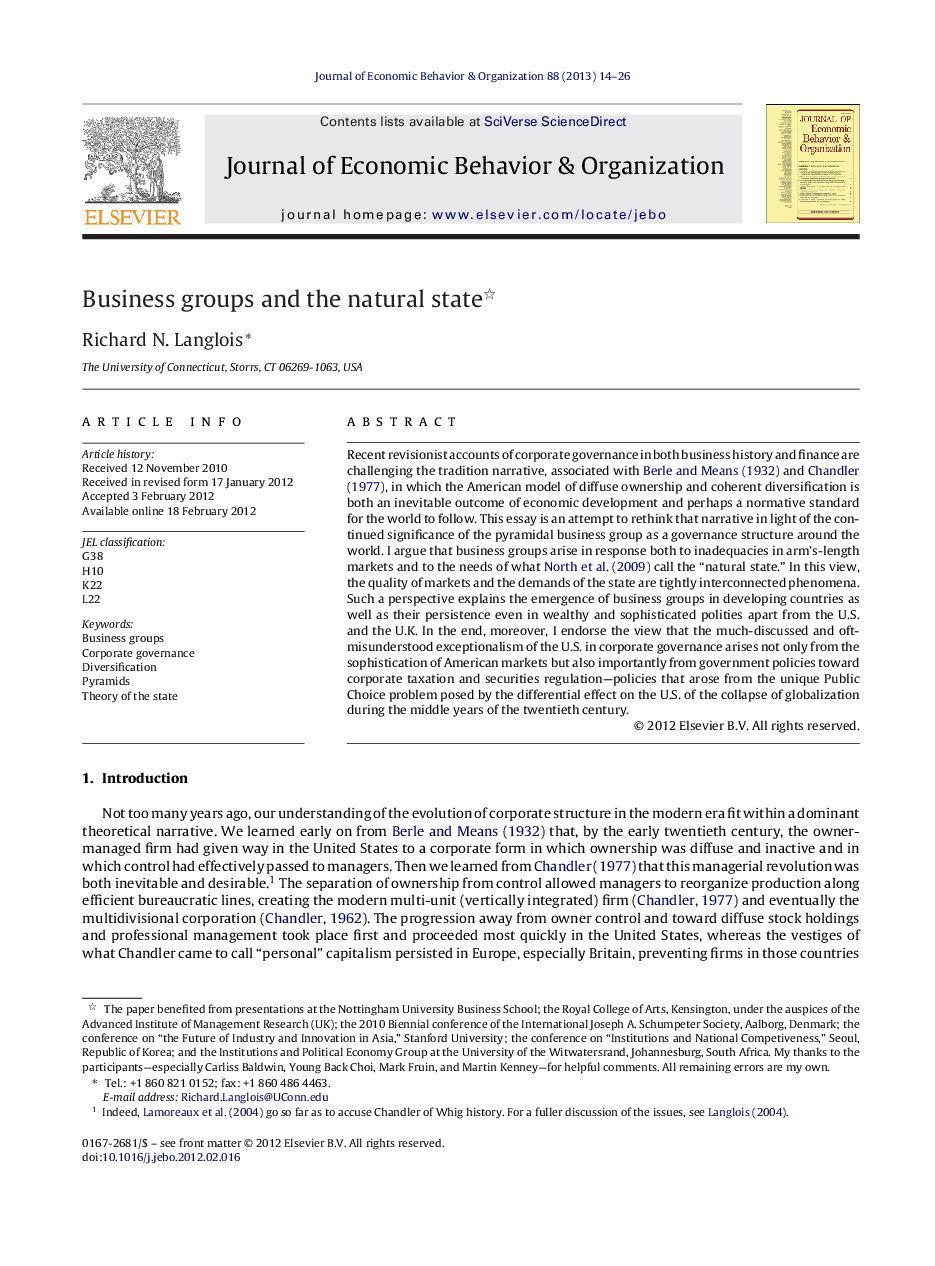| Article ID | Journal | Published Year | Pages | File Type |
|---|---|---|---|---|
| 883738 | Journal of Economic Behavior & Organization | 2013 | 13 Pages |
Recent revisionist accounts of corporate governance in both business history and finance are challenging the tradition narrative, associated with Berle and Means (1932) and Chandler (1977), in which the American model of diffuse ownership and coherent diversification is both an inevitable outcome of economic development and perhaps a normative standard for the world to follow. This essay is an attempt to rethink that narrative in light of the continued significance of the pyramidal business group as a governance structure around the world. I argue that business groups arise in response both to inadequacies in arm's-length markets and to the needs of what North et al. (2009) call the “natural state.” In this view, the quality of markets and the demands of the state are tightly interconnected phenomena. Such a perspective explains the emergence of business groups in developing countries as well as their persistence even in wealthy and sophisticated polities apart from the U.S. and the U.K. In the end, moreover, I endorse the view that the much-discussed and oft-misunderstood exceptionalism of the U.S. in corporate governance arises not only from the sophistication of American markets but also importantly from government policies toward corporate taxation and securities regulation—policies that arose from the unique Public Choice problem posed by the differential effect on the U.S. of the collapse of globalization during the middle years of the twentieth century.
